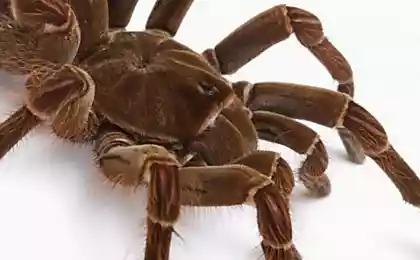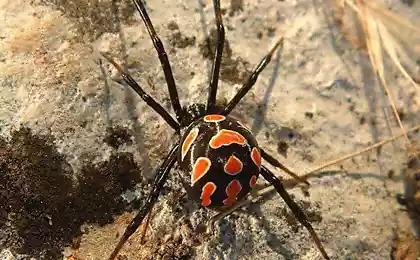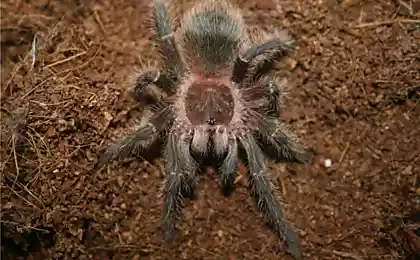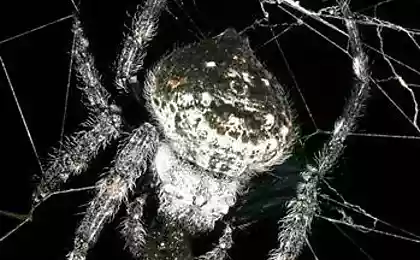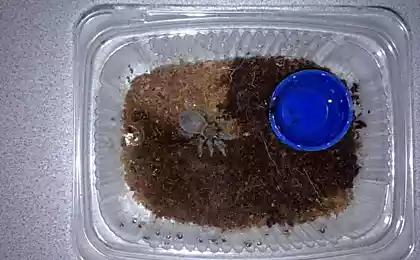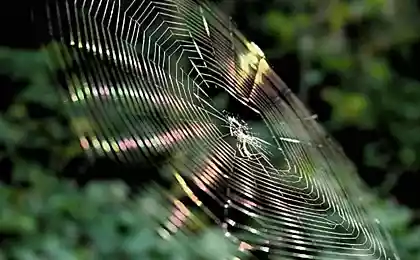362
Brazilian purple Pamphobeteus—tarantula
Despite the almost glamorous appearance, these South American tarantulas can hardly be called beings, pleasant in all respects. Brazilian purple Pamphobeteus (lat.Pamphobeteus platyomma) do not differ restraint and peaceful nature – for no apparent reason they can stab you in the skin of dozens of small hairs, which will immediately cause severe irritation.
Adult purple Pamphobeteus grow up to 9-11 cm in length with a leg span of up to 22 cm torso, and legs of males are covered with purple or bright pink hairs and carapace decorated with a star pattern, females are content with no notable brown robe.
Living in the tropical forests of Ecuador and South-Eastern areas of Brazil, the purple Pamphobeteus settle under the roots of shrubs, trees or dig holes where the meeting with the extraction of the most probable.
They do not weave a web, and, settling in ambush, patiently waiting, when they see a spider, a cricket, a cockroach or a frog. Despite the name, Brazilian tarantulas are not too fond of eating birds and other mammals and diversify their menus with meat only as needed.
Active and mobile, Brazilian purple Pamphobeteus often leave their shelter to explore the surrounding countryside. Alarmed at spider stesyvat abdomen with numerous stinging hairs, and angry Pamphobeteus can even bite the offender.
After mating, females lay 50 to 150 eggs, placing them in a pre-woven cocoon. Approximately four months later the young spiders.
Source: zoopicture.ru
Adult purple Pamphobeteus grow up to 9-11 cm in length with a leg span of up to 22 cm torso, and legs of males are covered with purple or bright pink hairs and carapace decorated with a star pattern, females are content with no notable brown robe.
Living in the tropical forests of Ecuador and South-Eastern areas of Brazil, the purple Pamphobeteus settle under the roots of shrubs, trees or dig holes where the meeting with the extraction of the most probable.
They do not weave a web, and, settling in ambush, patiently waiting, when they see a spider, a cricket, a cockroach or a frog. Despite the name, Brazilian tarantulas are not too fond of eating birds and other mammals and diversify their menus with meat only as needed.
Active and mobile, Brazilian purple Pamphobeteus often leave their shelter to explore the surrounding countryside. Alarmed at spider stesyvat abdomen with numerous stinging hairs, and angry Pamphobeteus can even bite the offender.
After mating, females lay 50 to 150 eggs, placing them in a pre-woven cocoon. Approximately four months later the young spiders.
Source: zoopicture.ru


